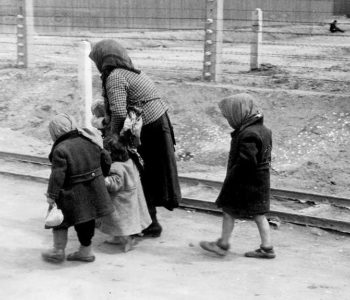 For the past few months, I have been hard at work on a book about a local man who survived the Holocaust in 1944. At 87, his son felt it was important to record his memories for posterity and he wanted to hire a professional writer to ask the kinds of questions and conduct the background research that a family member might not think to do.
For the past few months, I have been hard at work on a book about a local man who survived the Holocaust in 1944. At 87, his son felt it was important to record his memories for posterity and he wanted to hire a professional writer to ask the kinds of questions and conduct the background research that a family member might not think to do.
Needless to say, this has been a unique experience.
There is no way to adequately describe what it is like to listen to someone recall what it was like to be packed into cattle cars at the age of 14 and shipped off to an unknown destination simply because they happen to be Jewish. I cannot convey in a simple reflection what it is like to hear someone explain the cold and callous way he learned the fate of his mother and three younger siblings, describe the molestation he endured, or explain how Dr. Josef Mengele took a red marker and drew a giant X on his chest to indicate he was no longer useful as a laborer. (A fellow prisoner ultimately saved him from the gas chamber.)
Throughout the process, I had to ask a number of unbelievably difficult and personal questions in an effort to extract as much information from him as possible, but there was one question I kept returning to: “What does this do to your faith?”
This was a man whose entire education in Czechoslovakia was steeped in the Torah. He was raised in an Orthodox home and believed that one day, the nation of Israel would be re-established and that perhaps he and his family would live there. Now he is an agnostic who attends temple services out of a sense of tradition and familiarity rather than a firm belief in a higher power.
“We were supposed to be G-d’s Chosen People, but exactly what were we chosen for?” He mused during one of our conversations.
It’s the kind of statement that stops you cold. As a person of faith, I could point out those places where logically, I saw God’s presence in his life. I saw it in the prisoner/guardian angel who saved him twice. I saw it in the GIs who liberated him and adopted him as a mascot. I saw it in the kind Red Cross man who helped him get to America where one of his sisters was waiting for him in Chicago and I see it in his wife, children and grandchildren who clearly love him very much. However, none of that cancels out or makes sense of the fact that six members of his immediate family were among the millions who were killed. Not to him anyway. He’s not bitter mind you, just pragmatic.
I couldn’t help thinking of this man as I reflected upon today’s First Reading and the recent events throughout the world. It’s very easy to turn to God when things are going right, but infinitely harder when everything goes wrong or when the world doesn’t make any sense. However, that’s when we need Him the most. He is the one who helps us learn to laugh again after crying countless tears. He is the one who provides the rainbow after the storm, the heroes in the midst of terror and the music to heal the heartache. Even if we do not admit or acknowledge His presence, He still provides.
For He who has brought disaster upon you will, in saving you, bring you back to enduring joy.
Today’s readings for Mass: BAR 4:5-12, 27-29; PS 69:33-35, 36-37; LK 10: 17-24
